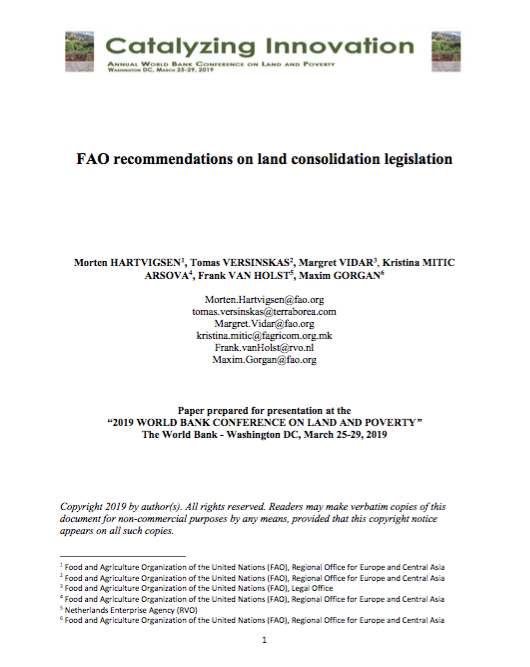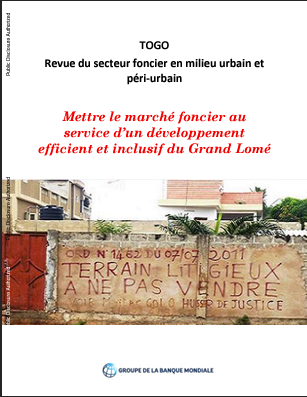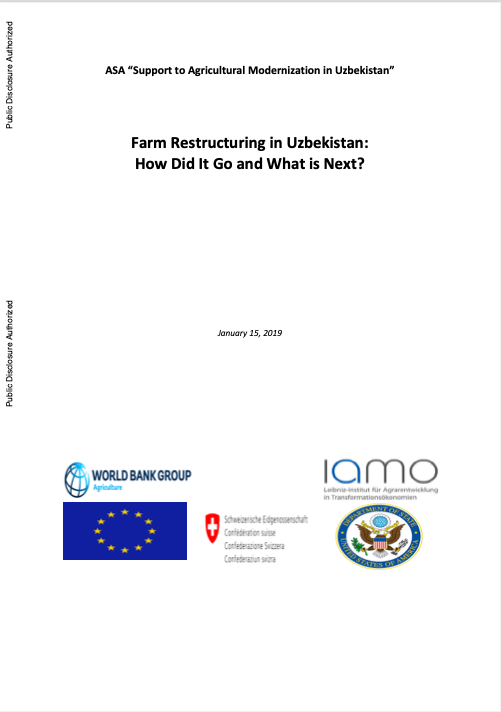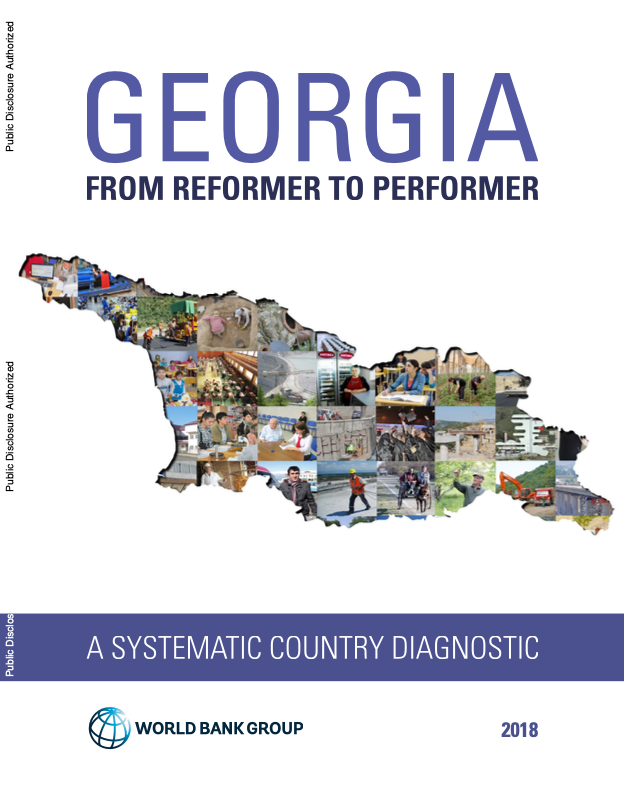The World Bank is a vital source of financial and technical assistance to developing countries around the world. We are not a bank in the ordinary sense but a unique partnership to reduce poverty and support development. The World Bank Group has two ambitious goals: End extreme poverty within a generation and boost shared prosperity.
- To end extreme poverty, the Bank's goal is to decrease the percentage of people living on less than $1.25 a day to no more than 3% by 2030.
- To promote shared prosperity, the goal is to promote income growth of the bottom 40% of the population in each country.
The World Bank Group comprises five institutions managed by their member countries.
The World Bank Group and Land: Working to protect the rights of existing land users and to help secure benefits for smallholder farmers
The World Bank (IBRD and IDA) interacts primarily with governments to increase agricultural productivity, strengthen land tenure policies and improve land governance. More than 90% of the World Bank’s agriculture portfolio focuses on the productivity and access to markets by small holder farmers. Ten percent of our projects focus on the governance of land tenure.
Similarly, investments by the International Finance Corporation (IFC), the World Bank Group’s private sector arm, including those in larger scale enterprises, overwhelmingly support smallholder farmers through improved access to finance, inputs and markets, and as direct suppliers. IFC invests in environmentally and socially sustainable private enterprises in all parts of the value chain (inputs such as irrigation and fertilizers, primary production, processing, transport and storage, traders, and risk management facilities including weather/crop insurance, warehouse financing, etc
For more information, visit the World Bank Group and land and food security (https://www.worldbank.org/en/topic/agriculture/brief/land-and-food-security1
Resources
Displaying 41 - 45 of 4907FAO recommendations on land consolidation legislation
Most countries in Western Europe have a long tradition for implementing land consolidation projects. In Central and Eastern Europe, land reforms from 1990 on in most countries resulted in farm structures characterized by excessive land fragmentation and small average farm sizes. Most CEE countries have introduced land consolidation instruments to address the structural problems. FAO has from 2000 on supported land consolidation in the region.
2019 WB conference: session of Climate Change and Forest Landscape Restoration
Revue du Secteur Foncier en Milieu Urbain et Péri-urbain : Mettre Le Marché Foncier au Service d’Un Développement Efficient et Inclusif du Grand Lomé
Le Togo a connu une forte croissance économique dont la poursuite devra être soutenue par l’amélioration du secteur foncier. La croissance économique de plus de 5% annuellement depuis 2009 est parmi les meilleurs du continent. Cette évolution s’est accompagnée d’une réduction de la pauvreté qui demeure cependant élevée à environ 55% (2015). La ville de Lomé a été l’un des piliers de ce développement, servant de base arrière au Port de Lomé, principal moteur de l’économie du pays.
Farm Restructuring in Uzbekistan: How Did It Go and What is Next?
In January 2019, Uzbekistan started a new farm restructuring1. It is said to seek to optimize the use of farmland by increasing the size of farms producing wheat and cotton, reallocating land to more efficient farmers and even clusters, and improving crop rotation options. This is not the first time that this kind of farm restructuring in Uzbekistan takes place. The country has gone through several waves of farm restructuring and land reallocations. Both these processes were administratively managed, with little reference to market or income generation opportunities.
Georgia: From Reformer to Performer
The fate of future generations of Georgians will be decided to start now. A girl born in Georgia today can expect to live for more than 86 years, to 2104. This girl, and her peers, will shape Georgia in the 21st century, but her future will also depend on the path that the country chooses today. What will her life look like when she becomes an adult? What will it take for her to be able to realize her dreams in Georgia, rather than abroad? What job prospects will the country offer?










